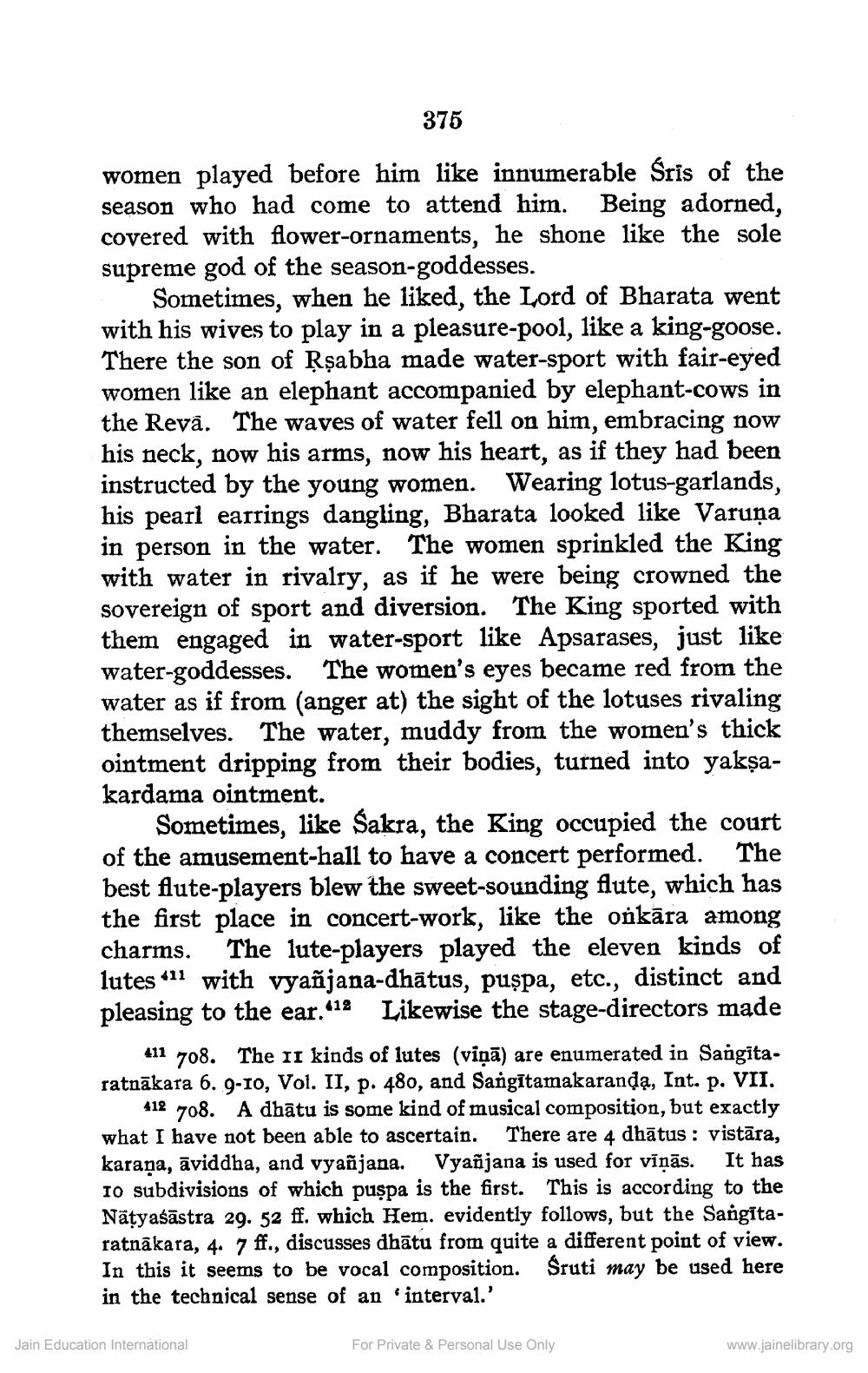________________
375
women played before him like innumerable Gris of the season who had come to attend him. Being adorned, covered with flower-ornaments, he shone like the sole supreme god of the season-goddesses.
Sometimes, when he liked, the Lord of Bharata went with his wives to play in a pleasure-pool, like a king-goose. There the son of Rşabha made water-sport with fair-eyed women like an elephant accompanied by elephant-cows in the Revā. The waves of water fell on him, embracing now his neck, now his arms, now his heart, as if they had been instructed by the young women. Wearing lotus-garlands, his pearl earrings dangling, Bharata looked like Varuņa in person in the water. The women sprinkled the King with water in rivalry, as if he were being crowned the sovereign of sport and diversion. The King sported with them engaged in water-sport like Apsarases, just like water-goddesses. The women's eyes became red from the water as if from (anger at) the sight of the lotuses rivaling themselves. The water, muddy from the women's thick ointment dripping from their bodies, turned into yakşakardama ointment.
Sometimes, like Sakra, the King occupied the court of the amusement-hall to have a concert performed. The best flute-players blew the sweet-sounding flute, which has the first place in concert-work, like the onkāra among charms. The lute-players played the eleven kinds of lutes 11 with vyañjana-dhātus, puşpa, etc., distinct and pleasing to the ear.412 Likewise the stage-directors made
411 708. The II kinds of lutes (viņā) are enumerated in Sangitaratnākara 6. 9-10, Vol. II, p. 480, and Sangītamakaranda, Int. p. VII.
412 708. A dhātu is some kind of musical composition, but exactly what I have not been able to ascertain. There are 4 dhātus : vis karaṇa, āviddha, and vyañjana. Vyañjana is used for vīņās. It has Io subdivisions of which puspa is the first. This is according to the Natyaśāstra 29. 52 ff. which Hem. evidently follows, but the Sangitaratnākara, 4. 7 ff., discusses dhātu from quite a different point of view. In this it seems to be vocal composition. Sruti may be used here in the technical sense of an interval.'
Jain Education International
For Private & Personal Use Only
www.jainelibrary.org




